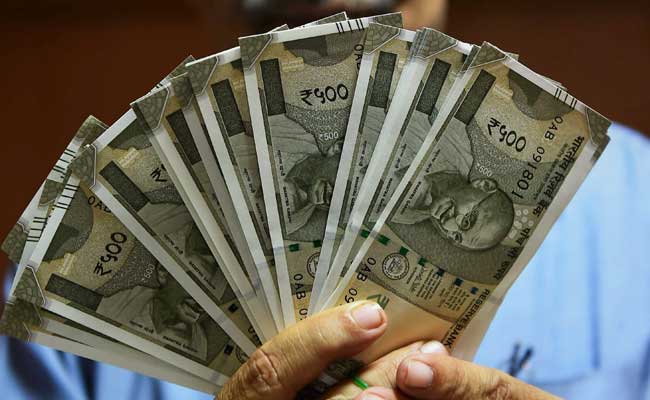શું તમે ફિક્સ ડીપોઝીટમાં રોકાણ કરેલ છે? જાણો 5 નિયમો જે તમે ન જાણતા હો..
 |
| Interest income on the bank's fixed deposit is fully taxable. |
Interest rates on fixed fixed deposits (FDs) of the bank have been declining in the last few years with the overall reduction in overall interest rates in the financial system. But it is still one of the most popular investment options. Interest rate guarantees and investors can earn interest on a monthly / quarterly basis, with maturity of seven years to less than 10 years. For example, India's largest bank State Bank of India (SBI) is offering 6.75% interest rate on deposits of one-year term, while the deposits of 3-5 years maturity now yield 6.25%.
Here are five things that you do not know about bank fixed deposits.
Deposit Insurance: It is a cover cover that you get on your deposits in banks. It is given by Deposit Insurance and Credit Guarantee Corporation (DICGC), a subsidiary of RBI. Premium is taken by banks. In the case of bank failure, DICGC will pay maximum of Rs. One lakh rupees will be given to the amount. The maximum amount for each depositor's principal and interest amount in the bank is Rs. There is an insured facility of up to 1 lakh.
Loans / overdraft facility against fixed deposits: For example, SBI offers loan / overdraft facility up to 90% of the main deposit, according to the bank's website. Banks get interest of 1% more than interest on fixed deposits.
TDS Factor: The interest on the bank's fixed deposit is fully taxable, which means interest income is added to your income and taxable as per applicable tax slab. Interest income of banks is Rs. If there is more than 10 thousand, interest income is taxable or tax deducted at 10% rate. 10,000 Now, it will have to claim TDS deducted by the bank by filing an Income Tax Return and wait for a refund. Depositors can submit Form 15G / 15H to the bank in order to prevent the bank from cutting the TDS. Form 15G / 15H is self-declaration forms, which are stated by the person that their income is less than the taxable limit.
Recurring Deposits: From 2015, TDS provision has been applied to the interest on recurring deposits.
Total account of interest income: Interest received from fixed deposit / recurring deposits is collected from all branches of the bank for the purpose of calculating total interest calculation and TDS. The total sum of which is made.
Thank you ...
Loans / overdraft facility against fixed deposits: For example, SBI offers loan / overdraft facility up to 90% of the main deposit, according to the bank's website. Banks get interest of 1% more than interest on fixed deposits.
TDS Factor: The interest on the bank's fixed deposit is fully taxable, which means interest income is added to your income and taxable as per applicable tax slab. Interest income of banks is Rs. If there is more than 10 thousand, interest income is taxable or tax deducted at 10% rate. 10,000 Now, it will have to claim TDS deducted by the bank by filing an Income Tax Return and wait for a refund. Depositors can submit Form 15G / 15H to the bank in order to prevent the bank from cutting the TDS. Form 15G / 15H is self-declaration forms, which are stated by the person that their income is less than the taxable limit.
Recurring Deposits: From 2015, TDS provision has been applied to the interest on recurring deposits.
Total account of interest income: Interest received from fixed deposit / recurring deposits is collected from all branches of the bank for the purpose of calculating total interest calculation and TDS. The total sum of which is made.
Thank you ...




No comments:
Post a Comment